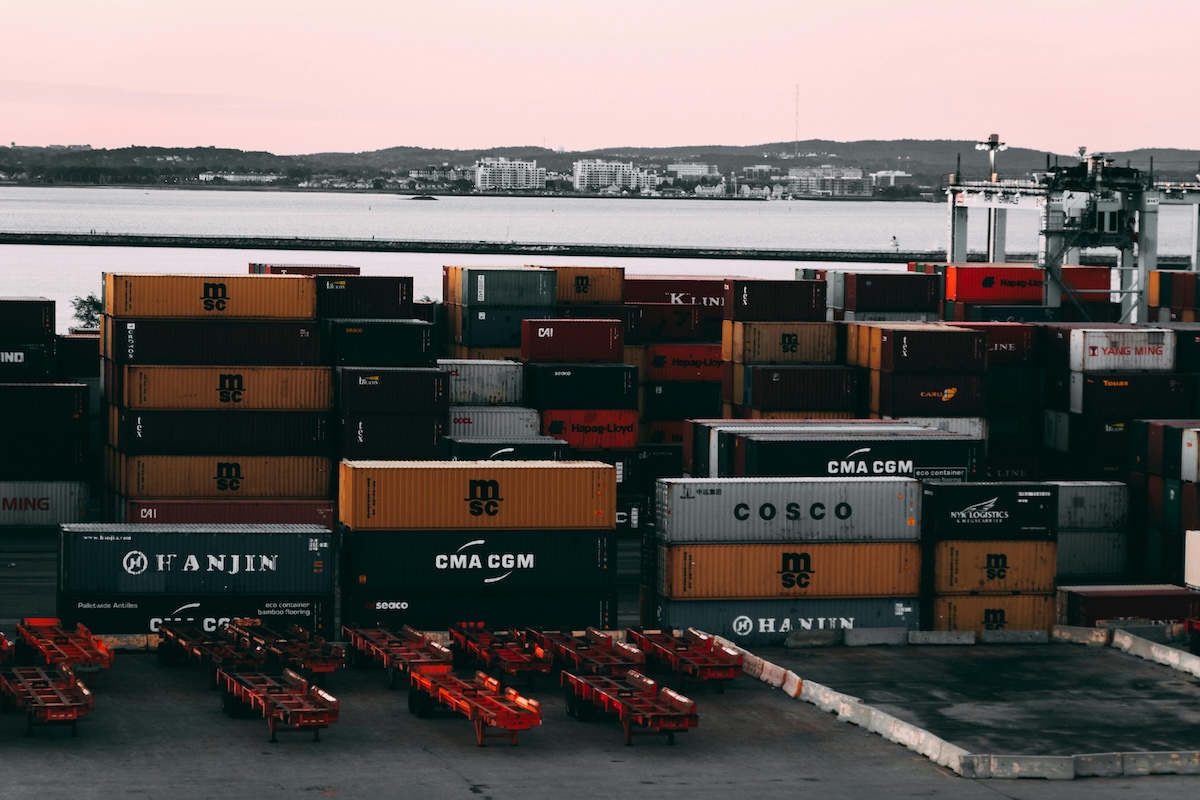ITAR Empowered Officials: Key Requirements and Responsibilities

Article Summary
An ITAR Empowered Official is a designated individual within a company who oversees ITAR compliance, signs export license applications, and ensures lawful defense exports.
The role must be filled by a U.S. person directly employed by the company, with authority to make policy decisions and deny non-compliant exports.
They must understand ITAR, EAR, and internal compliance procedures, and stay updated through formal training and ongoing education.
Responsibilities include reviewing and signing export licenses, ensuring compliance with ITAR, reporting violations, and refusing unlawful transactions.
They have corporate authority to legally bind the company in export matters and are personally accountable for the accuracy of submissions to DDTC.
They lead training, oversee audits, and promote ITAR compliance as a core business practice across the organization.
Introduction
Within the framework of the International Traffic in Arms Regulations (ITAR), compliance is not simply a paperwork exercise—it requires active oversight by qualified individuals who understand the legal, technical, and operational aspects of defense trade controls. Central to this system is the Empowered Official (EO), a role defined in 22 C.F.R. § 120.25 and required for all companies registered with the U.S. Department of State’s Directorate of Defense Trade Controls (DDTC).
An Empowered Official serves as the organization’s authoritative representative for ITAR compliance. This individual has the legal power and corporate authority to sign export license applications, agreements, and other submissions to DDTC on behalf of the company. Because of this responsibility, the Empowered Official must possess the knowledge, independence, and integrity necessary to ensure that all defense exports are conducted lawfully and in alignment with U.S. national security interests.
Key Details About ITAR Empowered Officials
1. Who Can Serve as an Empowered Official
The ITAR defines an Empowered Official as a U.S. person who:
- Is directly employed by the applicant company;
- Has authority for policy or management decisions within the organization; and
- Has independent authority to inquire into any aspect of a proposed export and deny authorization if the transaction does not comply with ITAR.
Importantly, an Empowered Official cannot be an external consultant, attorney, or foreign person. The role must be filled by someone who is permanently and directly part of the company’s structure, ensuring accountability and organizational control.
This requirement reflects DDTC’s emphasis on maintaining a clear line of responsibility for export decisions within the registered U.S. entity.
2. Training and Competence Requirements
An Empowered Official must have a comprehensive understanding of:
- The ITAR and Export Administration Regulations (EAR);
- The company’s internal compliance procedures; and
- The technical and legal implications of the company’s defense exports.
While ITAR does not specify a mandatory certification program, DDTC expects Empowered Officials to receive formal export compliance training and maintain current knowledge through ongoing education.
This training ensures the EO can make informed, legally sound judgments regarding export authorizations, technical data transfers, and the company’s obligations under ITAR.
3. Primary Responsibilities
The Empowered Official acts as the final compliance checkpoint for any export or agreement submitted to DDTC. Their core responsibilities include:
- Reviewing and signing license applications and agreements (e.g., Technical Assistance Agreements or Manufacturing License Agreements).
- Verifying the accuracy and completeness of all submissions to DDTC.
- Ensuring exports align with ITAR and U.S. national security interests.
- Reporting violations or potential violations to DDTC as required under ITAR § 127.12.
- Refusing to approve any transaction that appears unlawful or inconsistent with company policy.
Crucially, the Empowered Official must have the B'independent authority to say “no”' to a proposed export, even if management or customers exert pressure to proceed. This independence is what gives the EO role its regulatory strength and credibility.
4. Corporate Authority and Accountability
The Empowered Official must have sufficient corporate authority to bind the company legally and administratively in matters of export compliance. This means they can sign applications and correspondence with DDTC on behalf of the organization, and those actions carry the same legal weight as if performed by the company itself.
Because of this delegated authority, Empowered Officials bear personal responsibility for ensuring the truthfulness, accuracy, and completeness of all representations made to the U.S. government. False statements or willful misrepresentations may result in civil or criminal penalties, not only for the company but also for the individual EO.
5. Role in Compliance Culture and Risk Management
Beyond formal regulatory duties, the Empowered Official plays a pivotal role in shaping the company’s export compliance culture. They often lead internal compliance programs, provide training to employees, and oversee audits or investigations of export activities.
By fostering awareness and accountability across departments—engineering, contracts, logistics, and management—the EO ensures that ITAR compliance is not an afterthought but a core business practice integrated into daily operations.
Conclusion
The Empowered Official is at the heart of ITAR compliance. As the company’s officially designated compliance authority, this individual must combine technical knowledge, ethical judgment, and corporate authority to safeguard against unlawful defense exports.
By verifying licenses, maintaining oversight of controlled data, and upholding the integrity of export decisions, the Empowered Official serves as both a legal gatekeeper and a cultural leader within the organization.
In a regulatory landscape where even minor violations can have major consequences, a qualified and vigilant Empowered Official is not just a compliance requirement—it’s an essential line of defense for protecting both the company and U.S. national security.
Key Points
What is the role of an ITAR Empowered Official (EO)?
An ITAR Empowered Official is a legally designated individual within a company registered with the Directorate of Defense Trade Controls (DDTC). They are responsible for ensuring compliance with ITAR regulations, signing export license applications, and safeguarding against unlawful defense exports. The EO acts as the company’s authoritative representative for all ITAR-related matters.
Who is eligible to serve as an Empowered Official?
According to ITAR (22 C.F.R. § 120.25), an Empowered Official must:
- Be a U.S. person directly employed by the company.
- Have authority for policy or management decisions.
- Possess independent authority to deny export transactions that do not comply with ITAR.
External consultants, attorneys, or foreign persons cannot serve as an EO. This ensures accountability and organizational control within the registered U.S. entity.
What training and competencies are required for an Empowered Official?
An EO must have a deep understanding of:
- ITAR and Export Administration Regulations (EAR).
- The company’s internal compliance procedures.
- The technical and legal implications of defense exports.
While ITAR does not mandate specific certifications, formal export compliance training and ongoing education are essential. This ensures the EO can make informed, legally sound decisions regarding export authorizations and technical data transfers.
What are the primary responsibilities of an Empowered Official?
The EO’s core responsibilities include:
- Reviewing and signing export license applications and agreements (e.g., Technical Assistance Agreements).
- Verifying the accuracy and completeness of submissions to DDTC.
- Ensuring exports align with ITAR and U.S. national security interests.
- Reporting violations or potential breaches to DDTC under ITAR § 127.12.
- Refusing to approve transactions that appear unlawful or inconsistent with company policy.
The EO’s independence allows them to act as a regulatory safeguard, even under pressure from management or customers.
What corporate authority does an Empowered Official hold?
An Empowered Official has the legal and administrative authority to bind the company in export compliance matters. This includes signing applications and correspondence with DDTC on behalf of the organization. They bear personal responsibility for the accuracy and truthfulness of all representations made to the U.S. government. False statements or willful misrepresentations can result in civil or criminal penalties for both the company and the EO.
How does an Empowered Official contribute to compliance culture and risk management?
Beyond regulatory duties, the EO plays a critical role in fostering a compliance-first culture within the organization. They:
- Lead internal compliance programs and employee training.
- Oversee audits and investigations of export activities.
- Promote awareness and accountability across departments, including engineering, contracts, and logistics.
By integrating ITAR compliance into daily operations, the EO ensures that the company minimizes risks and upholds its obligations under U.S. law.










